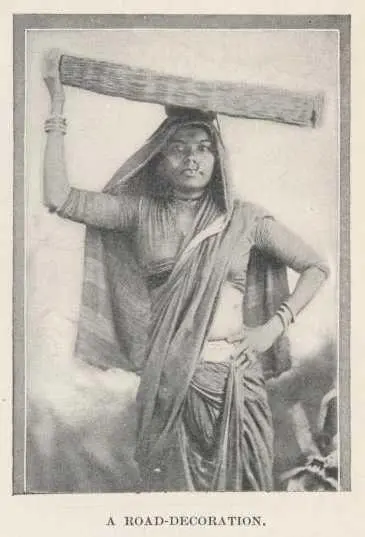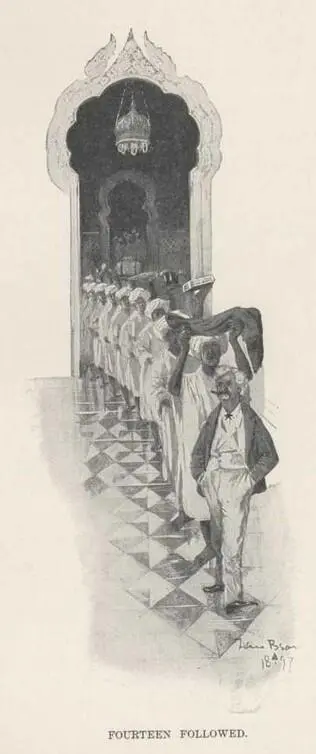Mark Twain - Following the Equator
Здесь есть возможность читать онлайн «Mark Twain - Following the Equator» весь текст электронной книги совершенно бесплатно (целиком полную версию без сокращений). В некоторых случаях можно слушать аудио, скачать через торрент в формате fb2 и присутствует краткое содержание. Год выпуска: 2004, Жанр: Классическая проза, Юмористическая проза, на английском языке. Описание произведения, (предисловие) а так же отзывы посетителей доступны на портале библиотеки ЛибКат.
- Название:Following the Equator
- Автор:
- Жанр:
- Год:2004
- ISBN:нет данных
- Рейтинг книги:3 / 5. Голосов: 1
-
Избранное:Добавить в избранное
- Отзывы:
-
Ваша оценка:
- 60
- 1
- 2
- 3
- 4
- 5
Following the Equator: краткое содержание, описание и аннотация
Предлагаем к чтению аннотацию, описание, краткое содержание или предисловие (зависит от того, что написал сам автор книги «Following the Equator»). Если вы не нашли необходимую информацию о книге — напишите в комментариях, мы постараемся отыскать её.
Following the Equator — читать онлайн бесплатно полную книгу (весь текст) целиком
Ниже представлен текст книги, разбитый по страницам. Система сохранения места последней прочитанной страницы, позволяет с удобством читать онлайн бесплатно книгу «Following the Equator», без необходимости каждый раз заново искать на чём Вы остановились. Поставьте закладку, и сможете в любой момент перейти на страницу, на которой закончили чтение.
Интервал:
Закладка:
EVENING—14th. Sailed in the Rosetta. This is a poor old ship, and ought to be insured and sunk. As in the 'Oceana', just so here: everybody dresses for dinner; they make it a sort of pious duty. These fine and formal costumes are a rather conspicuous contrast to the poverty and shabbiness of the surroundings . . . . If you want a slice of a lime at four o'clock tea, you must sign an order on the bar. Limes cost 14 cents a barrel.
January 18th. We have been running up the Arabian Sea, latterly. Closing up on Bombay now, and due to arrive this evening.
January 20th. Bombay! A bewitching place, a bewildering place, an enchanting place—the Arabian Nights come again? It is a vast city; contains about a million inhabitants. Natives, they are, with a slight sprinkling of white people—not enough to have the slightest modifying effect upon the massed dark complexion of the public. It is winter here, yet the weather is the divine weather of June, and the foliage is the fresh and heavenly foliage of June. There is a rank of noble great shade trees across the way from the hotel, and under them sit groups of picturesque natives of both sexes; and the juggler in his turban is there with his snakes and his magic; and all day long the cabs and the multitudinous varieties of costumes flock by. It does not seem as if one could ever get tired of watching this moving show, this shining and shifting spectacle . . . . In the great bazar the pack and jam of natives was marvelous, the sea of rich-colored turbans and draperies an inspiring sight, and the quaint and showy Indian architecture was just the right setting for it. Toward sunset another show; this is the drive around the sea-shore to Malabar Point, where Lord Sandhurst, the Governor of the Bombay Presidency, lives. Parsee palaces all along the first part of the drive; and past them all the world is driving; the private carriages of wealthy Englishmen and natives of rank are manned by a driver and three footmen in stunning oriental liveries—two of these turbaned statues standing up behind, as fine as monuments. Sometimes even the public carriages have this superabundant crew, slightly modified—one to drive, one to sit by and see it done, and one to stand up behind and yell—yell when there is anybody in the way, and for practice when there isn't. It all helps to keep up the liveliness and augment the general sense of swiftness and energy and confusion and pow-wow.
In the region of Scandal Point—felicitous name—where there are handy rocks to sit on and a noble view of the sea on the one hand, and on the other the passing and repassing whirl and tumult of gay carriages, are great groups of comfortably-off Parsee women—perfect flower-beds of brilliant color, a fascinating spectacle. Tramp, tramp, tramping along the road, in singles, couples, groups, and gangs, you have the working-man and the working-woman—but not clothed like ours. Usually the man is a nobly-built great athlete, with not a rag on but his loin-handkerchief; his color a deep dark brown, his skin satin, his rounded muscles knobbing it as if it had eggs under it. Usually the woman is a slender and shapely creature, as erect as a lightning-rod, and she has but one thing on—a bright-colored piece of stuff which is wound about her head and her body down nearly half-way to her knees, and which clings like her own skin. Her legs and feet are bare, and so are her arms, except for her fanciful bunches of loose silver rings on her ankles and on her arms. She has jewelry bunched on the side of her nose also, and showy cluster-rings on her toes. When she undresses for bed she takes off her jewelry, I suppose. If she took off anything more she would catch cold. As a rule she has a large shiney brass water jar of graceful shape on her head, and one of her naked arms curves up and the hand holds it there. She is so straight, so erect, and she steps with such style, and such easy grace and dignity; and her curved arm and her brazen jar are such a help to the picture—indeed, our working-women cannot begin with her as a road-decoration.

It is all color, bewitching color, enchanting color—everywhere all around—all the way around the curving great opaline bay clear to Government House, where the turbaned big native 'chuprassies' stand grouped in state at the door in their robes of fiery red, and do most properly and stunningly finish up the splendid show and make it theatrically complete. I wish I were a 'chuprassy'.
This is indeed India! the land of dreams and romance, of fabulous wealth and fabulous poverty, of splendor and rags, of palaces and hovels, of famine and pestilence, of genii and giants and Aladdin lamps, of tigers and elephants, the cobra and the jungle, the country of a hundred nations and a hundred tongues, of a thousand religions and two million gods, cradle of the human race, birthplace of human speech, mother of history, grandmother of legend, great-grandmother of tradition, whose yesterdays bear date with the mouldering antiquities of the rest of the nations—the one sole country under the sun that is endowed with an imperishable interest for alien prince and alien peasant, for lettered and ignorant, wise and fool, rich and poor, bond and free, the one land that all men desire to see, and having seen once, by even a glimpse, would not give that glimpse for the shows of all the rest of the globe combined. Even now, after the lapse of a year, the delirium of those days in Bombay has not left me, and I hope never will. It was all new, no detail of it hackneyed. And India did not wait for morning, it began at the hotel—straight away. The lobbies and halls were full of turbaned, and fez'd and embroidered, cap'd, and barefooted, and cotton-clad dark natives, some of them rushing about, others at rest squatting, or sitting on the ground; some of them chattering with energy, others still and dreamy; in the dining-room every man's own private native servant standing behind his chair, and dressed for a part in the Arabian Nights.
Our rooms were high up, on the front. A white man—he was a burly German—went up with us, and brought three natives along to see to arranging things. About fourteen others followed in procession, with the hand-baggage; each carried an article—and only one; a bag, in some cases, in other cases less. One strong native carried my overcoat, another a parasol, another a box of cigars, another a novel, and the last man in the procession had no load but a fan. It was all done with earnestness and sincerity, there was not a smile in the procession from the head of it to the tail of it. Each man waited patiently, tranquilly, in no sort of hurry, till one of us found time to give him a copper, then he bent his head reverently, touched his forehead with his fingers, and went his way. They seemed a soft and gentle race, and there was something both winning and touching about their demeanor.

There was a vast glazed door which opened upon the balcony. It needed closing, or cleaning, or something, and a native got down on his knees and went to work at it. He seemed to be doing it well enough, but perhaps he wasn't, for the burly German put on a look that betrayed dissatisfaction, then without explaining what was wrong, gave the native a brisk cuff on the jaw and then told him where the defect was. It seemed such a shame to do that before us all. The native took it with meekness, saying nothing, and not showing in his face or manner any resentment. I had not seen the like of this for fifty years. It carried me back to my boyhood, and flashed upon me the forgotten fact that this was the usual way of explaining one's desires to a slave. I was able to remember that the method seemed right and natural to me in those days, I being born to it and unaware that elsewhere there were other methods; but I was also able to remember that those unresented cuffings made me sorry for the victim and ashamed for the punisher. My father was a refined and kindly gentleman, very grave, rather austere, of rigid probity, a sternly just and upright man, albeit he attended no church and never spoke of religious matters, and had no part nor lot in the pious joys of his Presbyterian family, nor ever seemed to suffer from this deprivation. He laid his hand upon me in punishment only twice in his life, and then not heavily; once for telling him a lie—which surprised me, and showed me how unsuspicious he was, for that was not my maiden effort. He punished me those two times only, and never any other member of the family at all; yet every now and then he cuffed our harmless slave boy, Lewis, for trifling little blunders and awkwardnesses. My father had passed his life among the slaves from his cradle up, and his cuffings proceeded from the custom of the time, not from his nature. When I was ten years old I saw a man fling a lump of iron-ore at a slaveman in anger, for merely doing something awkwardly—as if that were a crime. It bounded from the man's skull, and the man fell and never spoke again. He was dead in an hour. I knew the man had a right to kill his slave if he wanted to, and yet it seemed a pitiful thing and somehow wrong, though why wrong I was not deep enough to explain if I had been asked to do it. Nobody in the village approved of that murder, but of course no one said much about it.
Читать дальшеИнтервал:
Закладка:
Похожие книги на «Following the Equator»
Представляем Вашему вниманию похожие книги на «Following the Equator» списком для выбора. Мы отобрали схожую по названию и смыслу литературу в надежде предоставить читателям больше вариантов отыскать новые, интересные, ещё непрочитанные произведения.
Обсуждение, отзывы о книге «Following the Equator» и просто собственные мнения читателей. Оставьте ваши комментарии, напишите, что Вы думаете о произведении, его смысле или главных героях. Укажите что конкретно понравилось, а что нет, и почему Вы так считаете.











